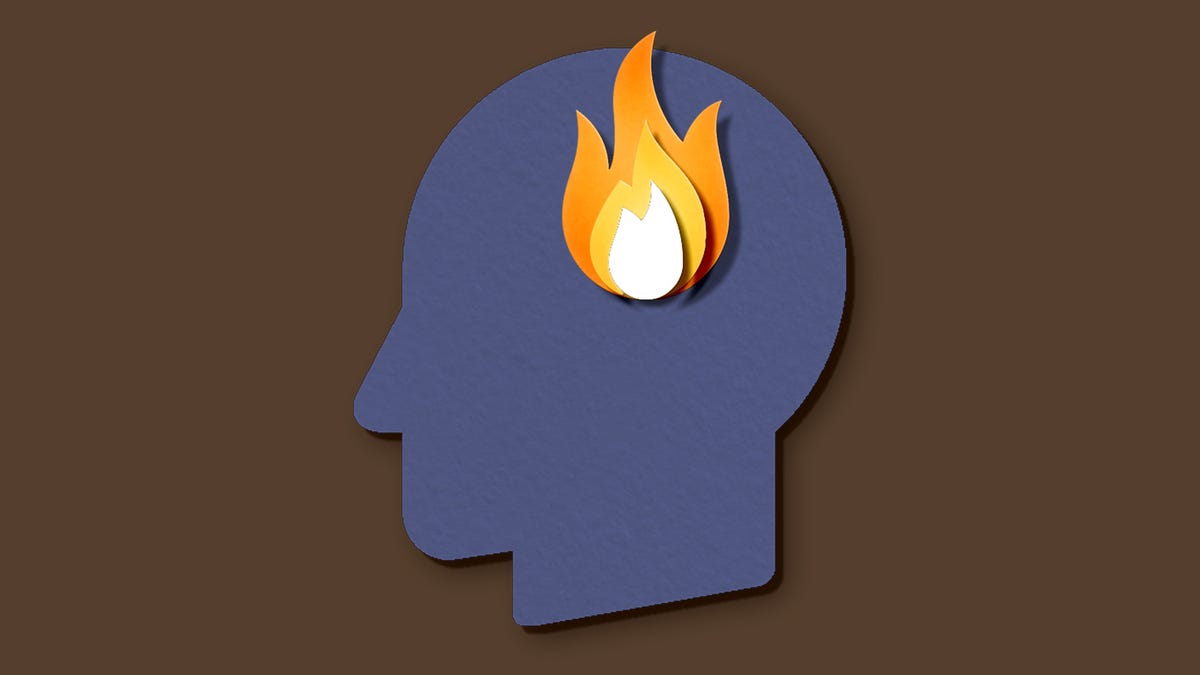 Why You Can Trust CNET
Why You Can Trust CNET Why Sleeping More Will Help Combat Fatigue and Burnout
Sometimes, the best thing to do when you have too much to do is close your eyes.

Though its definition is a little up to your interpretation, burnout is recognized by the World Health Organization as a response to workplace stress and categorized by feelings of exhaustion, negativity, cynicism or "mental distance" from work, as well as a feeling of being ineffective or not accomplishing anything.
It can affect any industry or person, employed or unemployed, and it's rising in workers everywhere by some estimates this year. Recently, it caught the eye of the US Centers for Disease Control and Prevention, which last month announced a program designed to help health care workers avoid burnout.
But it can also come from other life stressors, such as being a caregiver, feeling lonely or feeling like you never have time to do the thing you love doing. Simply put, burnout is a state of exhaustion that comes after being in a period of chronic stress.
Burnout can impact your health, change your diet and disrupt your sleep. But there's some good news: burnout is a solvable problem. Some ways you can reverse it include setting work/home life boundaries; saying no to tasks you don't have time to complete; and swapping out one task a week you feel like you "have" to do with a task you really "want" to do. But one of the simplest ways to start dealing with burnout is by... sleeping.
Let us explain.
Read more: Why I Use Sleep Deprivation as a Productivity Tool, and Why That's a Horrible Idea
Sleeping more to think less (and ultimately do more)
Anyone who's experienced the nagging feeling of falling behind can relate to the urge to either stay up really late or wake up super early in order to "get ahead" of the day. Though getting back on track by completing one overdue project in the early morning hours may be necessary sometimes, you're backing yourself into a painful corner if you routinely try to outcompete burnout and "get ahead" by slimming down sleeping time. And the quality of the work you're actually trying to do may suffer too. (Even if you feel like it isn't.)
Not sleeping can turn adult minds into toddler brains
When I asked Shelby Harris, a clinical psychologist who created the "five sleep languages," whether there was any merit to my feeling that I revert back to a toddler brain when I'm sleep deprived, she (more or less) said yes.
Sleep deprivation does a lot of weird and harmful things to our brain. While some of them may induce a feeling of a heightened state of arousal in the short-term for some people, sleep is imperative to our cognitive flexibility, which is our ability to respond to our environment and adapt to changes when they occur.
Because your ability to respond to and prevent burnout depends on your ability to recognize when you're overstressed or overworked, and then come up with ways to ease the stress, you'll see how sleep plays an integral part in burnout prevention.
Among other functions crucial to health, sleeping helps us do things that are important to ward off burnout, including:
- Process memories.
- Concentrate.
- Manage stress.
It also refines our perception of the world.
Sleep is so important to our cognitive functioning and emotional processing that being deprived of those crucial seven or so hours can deliver us to a mental state where a would-be minor inconvenience feels like the end of the world, and you feel like there's no fix to a problem.
Anyone who's ever spent time with a young child and walked with them through a conflict may be with me on the notion that sleep deprivation can lead to toddler-level problem solving abilities.
To help solidify the idea that your performance, and your satisfaction with what you're doing, will improve if you spend more time sleeping (and less time staring at your problem), think of your brain as a computer, with sleep as its charger.
Read more: People in 'Blue Zones' Live Longer: Here's How to Sleep Like One
Do you feel this way when sleep deprived?
Treat your sleep routine like a charger for your laptop
We know that being sleep deprived slows reaction time, and that good quality sleep is linked to higher academic performance among college students, as well as higher paychecks for working professionals. The better you treat the machine, the better the machine works for you. And that means shutting your laptop, plugging it in to charge, and leaving it alone sometimes.
If you're like many people who've experienced burnout, you might have a hard time separating your workplace from your home, which also means your bed and sleep. If this is you, follow these CNET tips for working from home and setting boundaries. Simple things like avoiding opening up your laptop in bed can help give you that much-needed recharge.
If poor sleep is generally a problem for you, you might consider completely revamping your bedroom or wherever you sleep. Simple changes like reducing noise and lowering the room's temperature may help.
If you need a hand figuring out how to get better sleep, read more about the different sleep languages, and specific tips for each language, and here's how to create the best environment for quality rest.
And remember: Burnout doesn't have to be permanent.
Read more: White Noise vs. Brown Noise: Which Is Best For Sleep?

